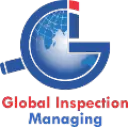Sri Lanka, often celebrated for its natural beauty and cultural heritage, is also rapidly becoming a key player in the global manufacturing and export landscape. With its strategic location, skilled workforce and an expanding range of industries, Sri Lanka offers significant opportunities for businesses looking to source quality products from the region. In this article, we’ll explore why Sri Lanka is emerging as a manufacturing hub, the advantages and challenges of sourcing from the country and the role that inspection services play in ensuring product quality.
Advantages of Sourcing from Sri Lanka
One of Sri Lanka’s greatest strengths is its strategic location. Situated near major shipping routes, the country acts as a gateway between the East and West, making it an ideal base for exporting to Europe, the Middle East and Asia. This geographical advantage significantly reduces transit times and shipping costs for businesses sourcing from Sri Lanka.
Additionally, Sri Lanka boasts a highly skilled and educated workforce, particularly in key sectors like textiles, rubber products and tea production. The workforce’s growing expertise in specialised industries means that businesses can expect high-quality products that meet international standards, often at competitive rates. The Sri Lankan government has also been supportive of foreign investments, offering incentives such as tax benefits and simplified business regulations to attract manufacturers.
Key Challenges Businesses Face
While Sri Lanka offers numerous advantages, businesses must also be aware of the challenges involved in sourcing from the country. One is navigating the complex regulatory environment, which can vary depending on the industry and product type. Additionally, supply chain disruptions due to global economic fluctuations or local political instability can impact manufacturing timelines and logistics.
Infrastructure is another consideration. Although the country has made strides in improving its transportation and industrial infrastructure, there are still areas where further development is needed, particularly in rural regions, where many factories are located. As such, businesses need to be prepared for potential delays or disruptions in logistics and production.
Key Industries for Inspections in Sri Lanka
Several industries are central to Sri Lanka’s export economy and require thorough inspection services to ensure that products meet international standards:
- Textiles and Apparel: Sri Lanka is renowned for its high-quality textiles and apparel exports, particularly in ethical and sustainable production. Inspection services focus on fabric quality, stitching and compliance with safety and sustainability certifications.
Rubber Products: Sri Lanka is a global leader in the production of high-quality rubber products, including tires and industrial components. Inspections are essential to verify the durability, safety and quality of these products. - Tea: Famed for its Ceylon tea, Sri Lanka exports tea globally, and inspections ensure that tea leaves meet stringent quality, safety and packaging standards to maintain the country’s global reputation.
- Gemstones and Jewellery: Sri Lanka is home to some of the world’s finest gemstones, including sapphires and rubies. Inspections focus on verifying the authenticity, quality and ethical sourcing of gemstones and ensuring jewellery craftsmanship meets high standards.
- Vehicles: Sri Lanka also manufactures and exports a range of vehicle parts and components. Inspection services help ensure that these products meet international safety and performance regulations.
Factors to Consider When Hiring an Inspection Company in Sri Lank
Hiring the right inspection company in Sri Lanka is crucial to ensuring product quality and compliance. Here are key factors to consider:
- Industry Expertise: Ensure that the inspection company has a proven track record in your specific industry, whether it’s textiles, rubber products, or tea. This will help in identifying potential issues unique to your products.
- Certifications and Accreditations: Look for inspection companies accredited by international standards organisations, such as ISO, to guarantee they follow globally recognised protocols.
- Local Presence: A company with a local office or team in Sri Lanka will be more familiar with the country’s regulations and logistics, ensuring faster response times and smoother inspections.
- Clear Reporting: The inspection company should provide detailed and transparent reports, highlighting any issues and offering clear recommendations for corrective action if needed.
- Flexibility: Look for companies that offer a range of services, from pre-production to final shipment inspections, so they can tailor their services to your needs.
Why Global Inspection Managing is the Right Inspection Partner in Sri Lanka
Sri Lanka’s growing role as a manufacturing and export hub presents significant opportunities for businesses. By partnering with the right inspection company, like Global Inspection Managing, businesses can confidently source high-quality products while overcoming the challenges of operating in a dynamic and evolving market.
Global Inspection Managing stands out as a reliable and experienced inspection partner in Sri Lanka. With deep expertise across industries such as textiles, rubber and tea, we provide comprehensive inspection services designed to meet international standards. We have a strong local presence, ensuring efficient service and a deep understanding of Sri Lankan regulations and business practices. We are also committed to transparency, providing clear, actionable reports that help businesses maintain the highest product quality. With competitive pricing and a wide range of services, Global Inspection Managing is the ideal partner for businesses looking to ensure the quality and compliance of their Sri Lankan exports.

